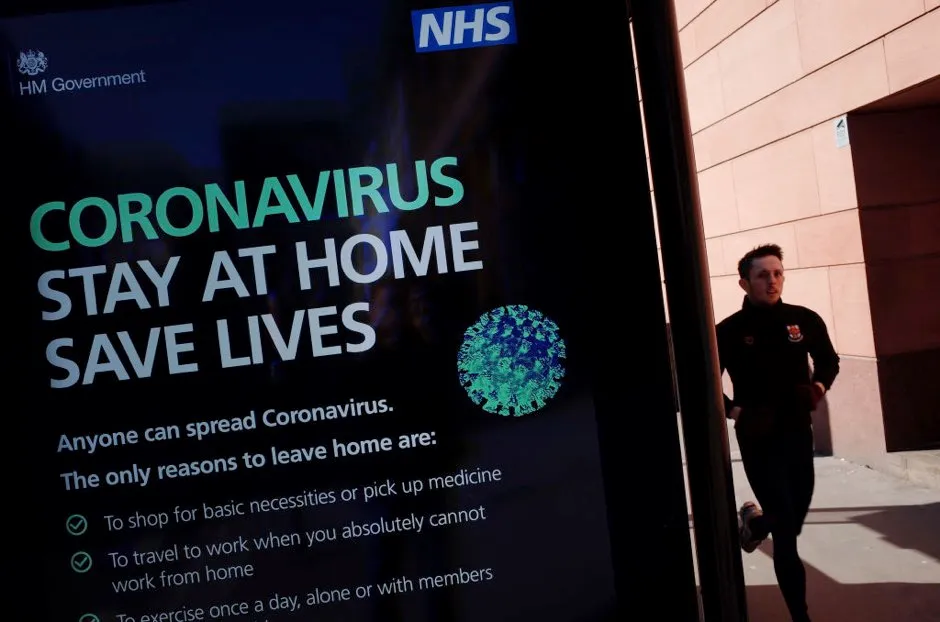Mental health and brain research must be a higher priority in the response to the coronavirus outbreak, scientists have said.
They are calling for urgent real-time monitoring of mental health to be rolled out in the UK, and across the world.
In a paper published in Lancet Psychiatry, the researchers say frontline medical staff and vulnerable groups must be a priority for support [opens as an external PDF].
The experts say that apps and digitally delivered programmes must be designed to protect people’s mental health during the COVID-19 lockdown.
They add that their paper highlights a vital need to tackle the harmful impacts of the pandemic on mental health and potentially the brain.
A joint statement by the report’s 24 authors states: “It is already evident that the direct and indirect psychological and social effects of the coronavirus disease 2019 (COVID-19) pandemic are pervasive and could affect mental health now and in the future.”
The paper calls for more widespread mental health monitoring and better ways to protect against, and treat, mental ill health – both of which will require new funding and better coordination.
Read the latest coronavirus news:
- Intermittent social distancing needed 'until 2022' to contain coronavirus
- Ferrets potential ally in the search for coronavirus vaccine
- Aggressive Wuhan lockdown 'halted coronavirus outbreak' in China
- Why are non-COVID related deaths on the rise?
According to an Ipsos Mori poll of 1099 members of the UK public, and a survey of 2198 people [opens as an external PDF] by the UK mental health research charity, MQ, the public already has substantial concerns about mental health in relation to coronavirus.
Both surveys were carried out in late March, the week lockdown measures were announced, to inform the Lancet Psychiatry paper.
They suggest the public had specific concerns related to COVID-19 including increased anxiety, fear of becoming mentally unwell, access to mental health services and the impact on mental wellbeing (see below for more details of what the surveys discovered).

Paper author Professor Emily Holmes from the Department of Psychology, Uppsala University in Sweden, said: “We are all dealing with unprecedented uncertainty and major changes to the way we live our lives as a result of the coronavirus pandemic.
“Our surveys show these changes are already having a considerable impact on our mental health.
“Governments must find evidence-based ways to boost the resilience of our societies and find ways to treat those with mental ill health remotely to come out of this pandemic in good mental health.
“Frontline medical staff and vulnerable groups such as the elderly and those with serious mental health conditions must be prioritised for rapid mental health support.”
Read more about the coronavirus:
- How can I protect myself from the coronavirus when shopping?
- Is hand-washing really the best thing we can do to stop the spread of COVID-19?
- Can herd immunity protect us from COVID-19?
- Will COVID-19 become a seasonal virus?
The paper also calls for the rapid roll out of evidence-based programmes and treatments, which can be accessed by computer, mobile phone or other remote ways, to treat mental health conditions and increase resilience to keep people mentally healthy.
The expert group, which was established and supported by the Academy of Medical Sciences and the mental health research charity, MQ, came together to create the road map they have published.

Professor Matthew Hotopf is vice dean research at King’s College London’s Institute of Psychiatry Psychology and Neuroscience and director NIHR Maudsley Biomedical Research Centre and one of the paper authors.
He said: “Knowing what is happening in real time will allow us to respond by designing more user-friendly and effective ways to promote good mental health while people are in their homes.
“Above all, however, we want to stress that all new interventions must be informed by top-notch research to make sure they work.”
Three mental health apps to help out during the pandemic
Headspace -The app has a free ‘weathering the storm’ section full of guided meditations, sleeps and exercises designed to help those struggling with the anxiety and isolation created by the coronavirus pandemic.
Calm -The team behind this app have pulled together a page of resources to help people find their calm in the midst of the pandemic. In particular, their sleep range will help you drift off, crisis or not.
Sanvello - This app is dedicated to providing mental health care where doctors can’t. It includes guided meditations, coping tools, assessments and peer support. It’s free during the COVID-19 crisis.
While Rory O’Connor, professor of health psychology at the University of Glasgow, and one of the paper authors said: “Increased social isolation, loneliness, health anxiety, stress and an economic downturn are a perfect storm to harm people’s mental health and wellbeing.
“If we do nothing we risk seeing an increase in mental health conditions such as anxiety and depression, and a rise in problem behaviours such as alcohol and drug addiction, gambling, cyberbullying or social consequences such as homelessness and relationship breakdown.
“The scale of this problem is too serious to ignore, both in terms of every human life that may be affected, and in terms of the wider impact on society.
“Despite this situation making some of us feel trapped, it shouldn’t make us feel powerless, we can make a difference if we act now.
“We are calling on funding bodies, research institutes and policy to act now to limit the impact the pandemic has on all our lives.”
The Ipsos Mori and MQ polls findings about mental health during lockdown
Anxiety and isolation were among the most significant concerns highlighted by people during the early stages of coronavirus lockdown.
The Ipsos Mori and MQ polls suggest individuals experienced a range of fears related to anxiety, such as worries about finances and housing.
Meanwhile, the impact of isolation on wellbeing and mental health was also cited by many.
The words “anxiety” and “anxious” were mentioned in over 750 of the 2,198 submissions collected by UK mental health research charity MQ.
The Ipsos Mori poll of 1,099 people from the general public painted a similar picture, with over half of responses about mental illness related to anxiety.
Practical concerns in life – ranging from employment, obtaining food and medication, to housing and lack of access to outside space – was mentioned as a contributing factor for anxiety by numerous respondents.
They said anxiousness was also brought on by the overwhelming uncertainty of the pandemic and fear of loved ones becoming ill or dying.
Some were worried about the extent to which other people were complying with Government guidelines and risking further spread of the disease.
Repeated, and sometimes compulsive, consumption of media and social media commentary was fuelling feelings of anxiety by 2 per cent, according to the MQ survey.
Read more:
- Corrupted Blood: what the virus that took down World of Warcraft can tell us about coronavirus
- Coronavirus mythbuster: a GP separates the facts from the fake news
- Which science and tech shows to stream, watch and listen to during lockdown
- 10 science-backed tips to help you work from home successfully
The issue of loneliness made up about a third of the general population respondents’ concerns about social distancing – 13 per cent of the submissions were about social distancing.
Despite this, many said the lockdown presented an opportunity to attend to long-awaited DIY tasks, domestic cleaning and decluttering.
Almost a quarter (24 per cent) of those from the general population pool referred to entertainment such as reading, hobbies, DIY, crafts, listening to music and watching films and TV.
More than one in 10 (12 per cent) referred to household chores such as cooking, cleaning and gardening.
